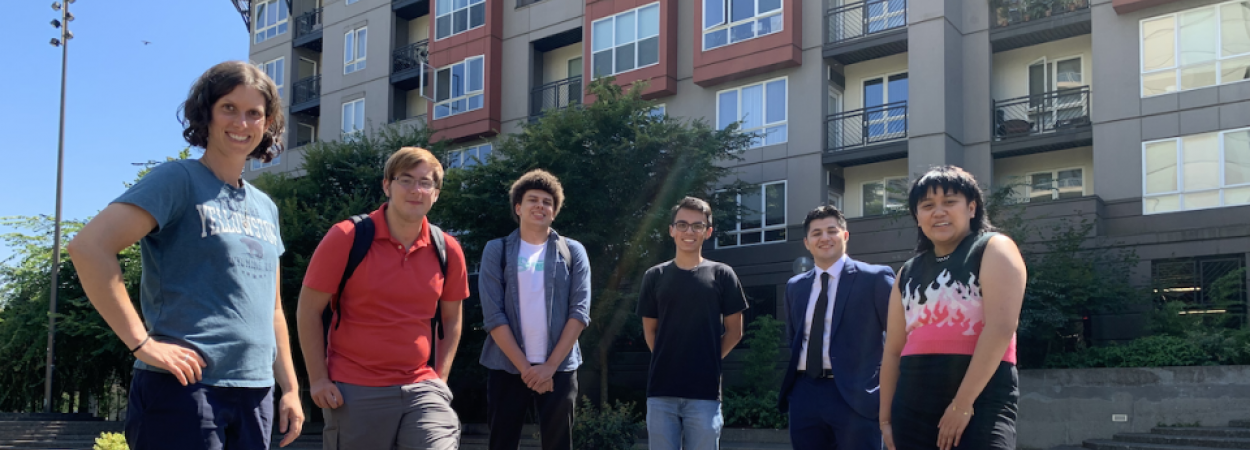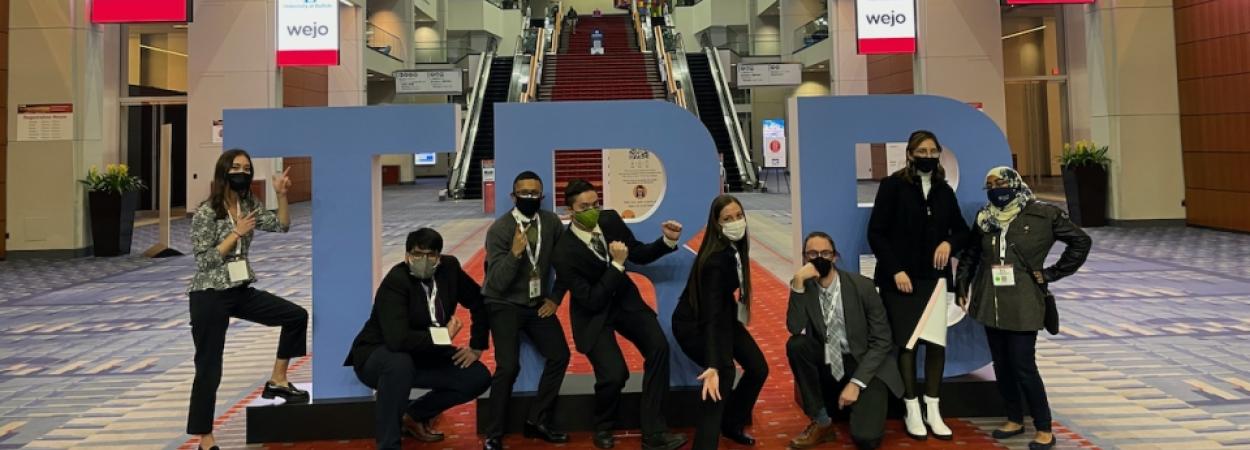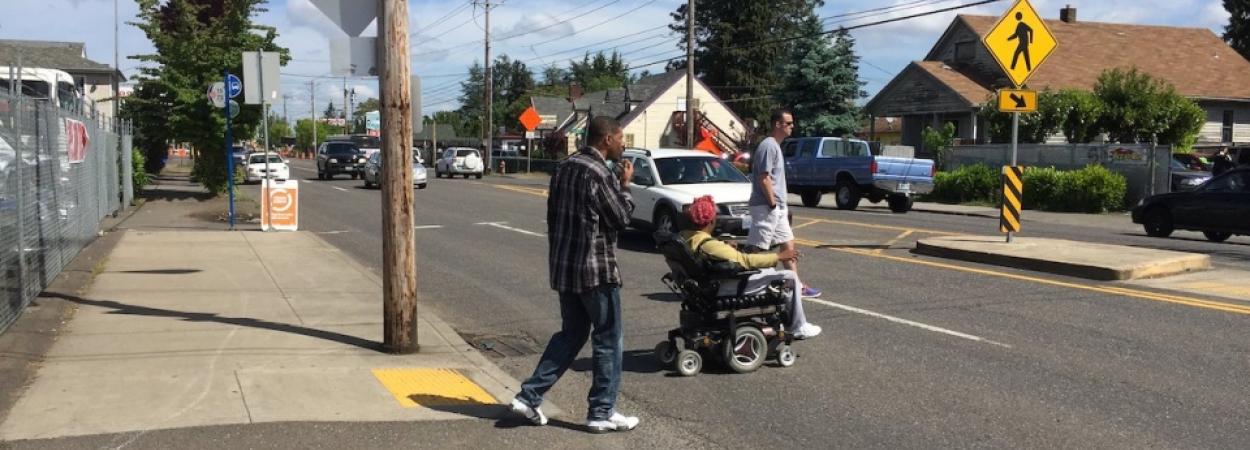 |  |  |

We are proud to introduce four new transportation scholarship recipients at Portland State University for the 2022/23 academic year. Congratulations to Peter Domine, Lise Ferguson, Kyu Ri Kim, and Valeria Tapia, all students in the Toulan School of Urban Studies and Planning!
Scholarships are made possible by the generosity of donors who want to invest in the future of Portland State students. PSU students work on real transportation system projects with partners in our community. Through scholarships, we can support students in overcoming barriers to funding as well as acknowledging those who go above and beyond in advancing transportation. Learn more about PSU transportation funding opportunities and read about past transportation scholars.
I am a lifelong Oregonian and…
Read More
How can community members become more engaged in transportation decision making?
Individuals and groups can learn to effect powerful change, but success requires some familiarity with how civic processes work. Community Transportation Academies, or CTAs, provide a basic technical understanding of how a city or region’s transportation system operates, along with the decision makers and decision-making processes that determine how the system is shaped.
Supported by the National Institute for Transportation and Communities (NITC), the new Wasatch Transportation Academy (WTA) at the University of Utah was piloted in 2022 in the Salt Lake City region. The research team developed a course vision, topics, and logistics for the WTA by interviewing stakeholders in the Utah Governor’s Office of Planning and Budget, the Utah Department of Transportation, the Utah Transit Authority, Salt Lake…
Read More
The Transportation Undergraduate Research Fellowship (TURF) program at Portland State University has hosted twenty-four fellows since 2017, and recently wrapped up its summer 2022 session. This year, six undergraduate researchers worked on projects aimed at improving the safety and efficiency of multimodal transportation systems. The research goals ranged from surveying pedestrian count programs and safety performance functions across the country, to reviewing case studies of tactical curb extensions and collecting pedestrian data at intersections.
Hosted by PSU’s Transportation Research and Education Center (TREC), the TURF fellows also experience a variety of workshops with PSU faculty and staff on research, communication and data science skills. They attended the 2022 Forth Mobility Roadmap Conference in June, and participated in networking events with the…
Read More
We're proud to announce that the Institute for Transportation Engineers (ITE) has awarded Portland State University's ITE Student Chapter, Students in Transportation Engineering and Planning (ITE-STEP), the 2022 Student Chapter Momentum Award. The award recognizes the student group for an outstanding year of accomplishments.
This year's ITE-STEP leadership made big strides in activating and energizing the student chapter. They hit the ground running after being elected, to prepare for Transportation Research Board (TRB) scholarship applications, through which they leveraged UTC funding from the National Institute for Transportation and Communities to send ten PSU students to attend the TRB annual meeting in Washington, D.C.
Read More"The award shows the dedication and commitment that the ITE-STEP board provided. D…

Cross-posted from Oregon State University
Research by the Oregon State University College of Engineering and Portland State University suggests a trio of roadway treatments would enable people age 65 and older to travel on foot more safely.
The research findings are important because older pedestrians are among the most likely to be killed in traffic accidents, according to the National Safety Council. In the United States in 2020 there were 709 pedestrian fatalities in the 65-74 age group – 20% of total road-user deaths in that age bracket. The project used data from Oregon collisions but is likely applicable in other areas, and it provides a framework for jurisdictions to develop their own safety recommendations, said David Hurwitz of the…
Read More